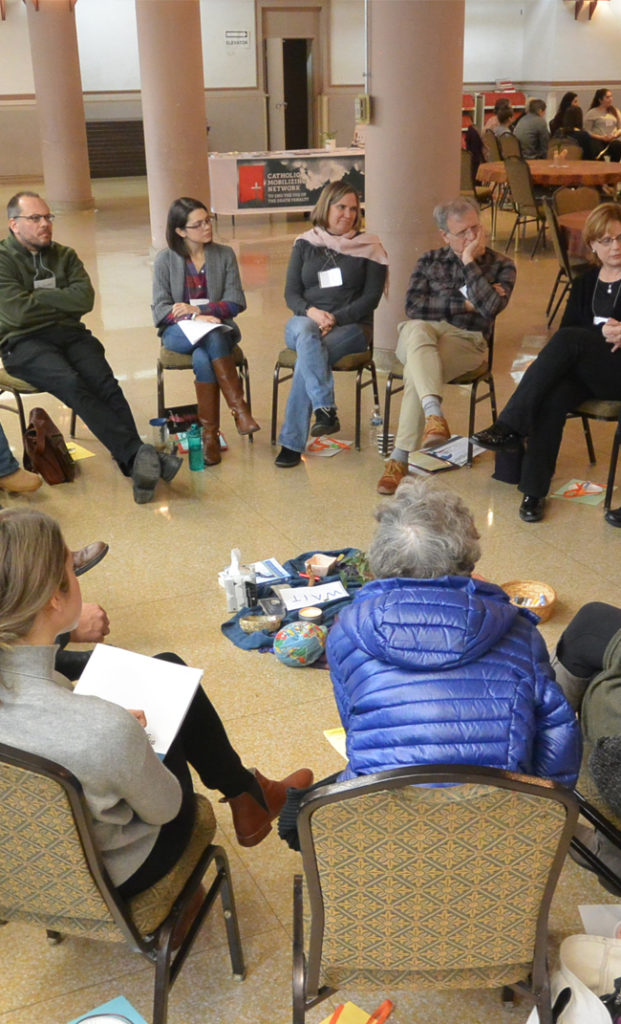

Opening another door to justice
RJAG Mission
RJAG promotes the values of Restorative Justice, and advocates for infrastructure/programs in schools, in the criminal legal system and in the community, to carry out (live out, support, build) those values.
Member Meetings are the 2nd Wednesday of every month at 7:00 p.m. LOCATION.



“Restorative Justice is an approach for responding to harm and conflict in a community that works to heal what is broken, respect the value and experiences of all involved, recognize the importance of relationships, and bring about accountability.”
Restorative Justice Advocates of Georgia

Restorative Justice Advocates of Georgia
RJAG formed with groups of individuals from all areas of the community with one common idea – social justice instead of revenge. The group organized around the historical successes of other American states that have developed policies and adopted laws as a way of looking at criminal justice that emphasizes repairing the harm done to people and relationships rather than only punishing offenders (Zehr, 1990)
Restorative justice echoes ancient and indigenous practices employed in cultures all over the world, from Native American and First Nation Canadian to African, Asian, Celtic, Hebrew, Arab and many others (Eagle, 2001; Goldstein, 2006; Haarala, 2004; Mbambo & Skelton, 2003; Mirsky, 2004; Roujanavong, 2005; Wong, 2005).
In the modern context, restorative justice originated in the 1970s as mediation or reconciliation between victims and offenders. Eventually modern restorative justice broadened to include communities of care as well, with victims’ and offenders’ families and friends participating in collaborative processes called conferences and circles. Conferencing addresses power imbalances between the victim and offender by including additional supporters (McCold, 1999).
Areas for RJ
- Schools
- Prisons
- Community Groups
- Court System
Other RJ Areas
- Participatory Defense
- Victims Advocate
- Teen Summits
- Law Enforcement
Institutional RJ
- Foster Homes
- Churchs
- Family Conferences
- Parenting Groups

"If we do an eye for an eye and a tooth for a tooth, we will be a blind and toothless nation." Martin Luther King, Jr.
Frequently Asked Questions
“Restorative justice is not simply a way of reforming the criminal justice system. Its vision is of a holistic change in the way we do justice in the world.”
–John Braithwaite
What is the difference between Restorative and Retributive Justice?
Restorative Justice views a crime as an act against an individual and the community. In contrast, Retributive Justice considers crime an act against the state and a violation of the state’s law and moral code.
What does restorative justice focus on?
Restorative Justice focuses on the rehabilitation of the offender, victim healing, and reparation of the harm caused. Retributive Justice, on the other hand, focuses on punishment, one that is suitable and proportionate to the crime committed.
Who is involved in the restorative justice process?
The victim and the community are central to the process of Restorative Justice whereas their role is limited or virtually non-existent in the process of Retributive Justice.
How do you come to a decision in restorative Justice?
Restorative Justice is carried out through either negotiation or mediation that typically involves the participation of the victim, offender, and the community. In contrast, Retributive Justice entails no such process and instead focuses on punishing the offender for the crime.
How do you determine who wins in these cases?
Restorative Justice focuses on achieving justice through the involvement of the above-mentioned parties. Instead, Retributive Justice maintains that justice is served when the offender has been punished appropriately.
Is there legislation that supports restorative justice?
Restorative justice is the newest emerging policy theme and is gaining wide support. This trend in policy attempts to change our view of crime. In our current retributive system, a criminal act is gener- ally distinguished as an offense committed by an offender against the state.
JOIN US FOR JUSTICE
Be an intregal part of promoting, supporting, and implementing RJ practices in Georgia
RJAG is growing. Your membership adds to the strategic thinkers throughout our State who are actively implementing restorative justice principles and practices. These groups include community, criminal justice, law enforcement, corrections, workplaces, and educational organizations. Through membership you will have access to resources and timely happenings that can support you in bringing restorative justice principles and practices into your work and community.
